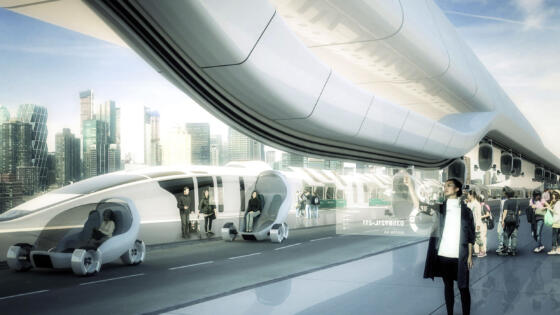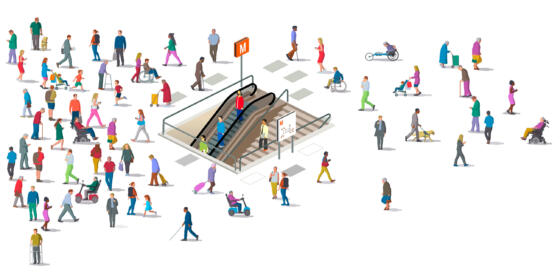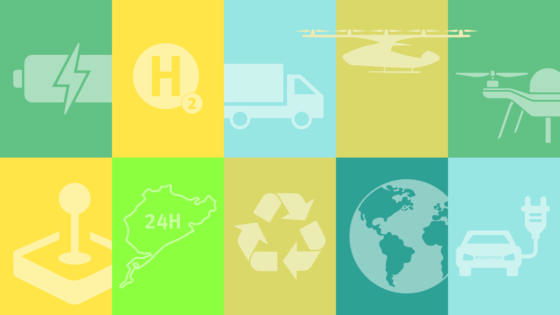
Mental block
German Emperor Wilhelm II purportedly was not convinced when the automobile gained traction at the end of the 19th century. The following quote is attributed to him: “The automobile is a transient phenomenon. I believe in the horse.”
A mental block? That would be typically human, because Homo sapiens is not a unit but a system consisting of mind, body and soul. That, for instance, can manifest itself by the mind knowing that global warming must be stopped but the body being too lazy to walk to the bakery and instead plopping itself down into the seat of a car with an IC engine …
Electric vehicles, car sharing, priority for bicycles – to name just a few hot topics – are far from having entered everyone’s mindset and may even be totally rejected for fear of change. What are the underlying reasons? How can such blocks be dissolved? Plus: Does every older man with a low income living in the country typically suffer from a mental block? Because he feels that he’s too old for change, can’t afford his personal mobility transition and isn’t able to use an electric car in the country anyway?

“Technology always wins out when it makes daily life easier.”
“No,” says distinguished traffic psychologist Ulrich Chiellino, who oversees transportation policy at ADAC, Europe’s largest mobility association. “Any change entails certain risks for the individual, and such risks vary. However, that doesn’t necessarily have to do with where people live, how old they are or other characteristics. The key aspects are how relevant it is for an individual to refocus their behavior and to engage in a process, and what prerequisites must be created to win over as many people as possible.”
Prospects are important
For that to happen, prospects must be put forth that bring home the related changes to everyone. Chiellino: “Disruptive events such as the pandemic have shown how fast people can adjust as well as how fast a technology shift can be achieved. In terms of digitalization, it created a new relevance for action in every individual’s life. By contrast, the situation with climate protection differs to some extent. It tends to be more of a journey that must be made jointly. Very few people have doubts about its necessity – the discussion is not about the ‘if’ but the ‘how.’” In addition, he continues, the options that are available are crucial: “Because people want to continue to be mobile, they want reliability, they appreciate availability, plus the options must be affordable and, last but not least, a certain level of security is needed.”

That said, Chiellino feels that quite a bit has already been accomplished, electric cars being a case in point: “At first the discussion was always focused on inadequate range and high risk of fire. Now you hardly hear or read anything about that anymore. When issues like charging infrastructure are resolved at the same time, the trust of individuals can be gained step by step so that transformation is ultimately achieved and adopted.“
Step by step – that also applies to familiarization with new technologies. Experience has shown that resistance often crumbles when people have personally experienced the benefits of innovations. That also explains why so much resistance still exists against automated driving. Chiellino: “Our surveys have shown that only very few drivers have ever been in contact with that technology. They haven’t been able to deal with it because they don’t have any access to such vehicles yet. Knowledge about the technology is inadequate and therefore its benefits aren’t tangible yet. So, it’s no wonder that many people are still skeptical.”
Benefits vs. bias
That was the case even before Emperor Wilhelm – for instance, in the days of the industrial revolution that started with steam engines. While English miners were skeptical at first because the boilers exploded around them it soon became clear how much easier the machines made mining because they took care of the necessary drainage work. “Consumers always eyeball changes skeptically at first,” says the traffic psychologist, “because while walking on a familiar path I feel safe, know my way around and therefore am not inclined to leave it just like that. Why should I take an additional risk? Entrepreneurs, though, need to think beyond that. To them, the rule applies that if you don’t move with the times the times will move on without you, and in most cases, you can’t make up the resulting disadvantage.”
However, at the end of the day, history proves that technology always wins out – even against all blocks in various brains, or not? “It always wins out when its design is user-friendly and attractive, and when it manages to make daily life easier,” says Ulrich Chiellino, pointing out a comparison with digitalization: “The first iPhone hit the market in 2007, which is just 15 years ago. Even so, almost everybody today has internalized the benefits of the smartphone because it makes our daily lives more efficient. Technology can fascinate us, win us over for innovation again and again, and even make us happy.”
Driving pleasure redefined
Apropos “happy:” Is it okay today to keep talking about “driving pleasure” in the face of all the climate discussion? Because the loss of driving pleasure is an argument put forth by some mobility transformation skeptics. Chiellino responds diplomatically: “It’s possible that in the future ‘driving pleasure’ will have a different meaning than it does for us today. For instance, driving pleasure may be the personal break we can take in a self-driving vehicle, in other words a gain in free time. But climate-compatible transformations in technology may also cause the original ‘driving pleasure’ to be preserved, or even enhanced – when people realize how agile electric vehicles can be.”
The traffic psychologist’s advice for anyone trying to overcome their barriers: “Start looking at your own daily and local mobility needs and check which means of transportation make sense for what. Structures keep changing, spaces change. That calls for trying things out, opening one’s mind to new perspectives and prospects, and then adopting the outcome into daily life.”
By the way, that’s what Emperor Wilhelm did too – he ultimately owned a respectably motorized fleet …




